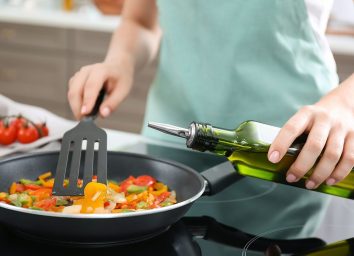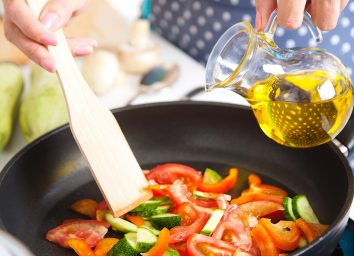20 Ways to Be a Better Cook in Minutes
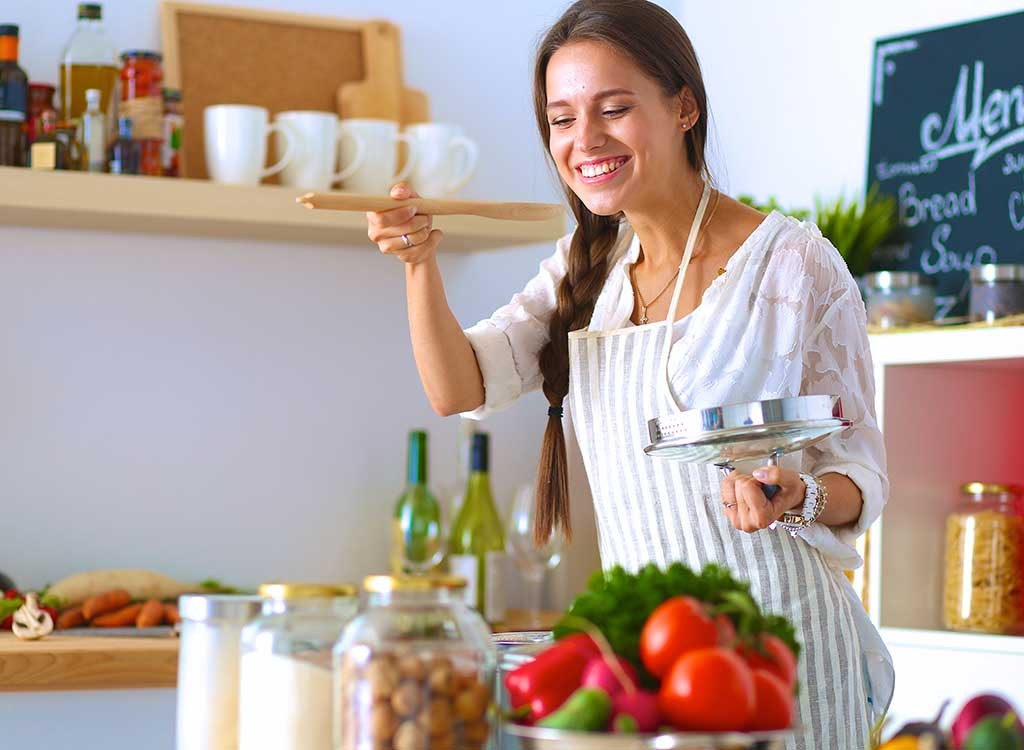
They say cooking is an art form, and that's certainly true for culinary novices. While creating a spice rub or trussing a chicken is old hat to longtime home cooks, for newbies, it's like being told to recreate the Sistine Chapel with crayons.
However, even if you're out of practice in the kitchen, you can still cook with the best of them in the near future. These 20 ways to be a better cook will help you channel your inner chef, wowing everyone who earns a spot at your dinner table in the process. And when you're ready to spice up your culinary repertoire—and save money doing it—incorporate the 46 Best Supermarket Shopping Tips into your routine. Bon appetit!
Practice, Practice, Practice
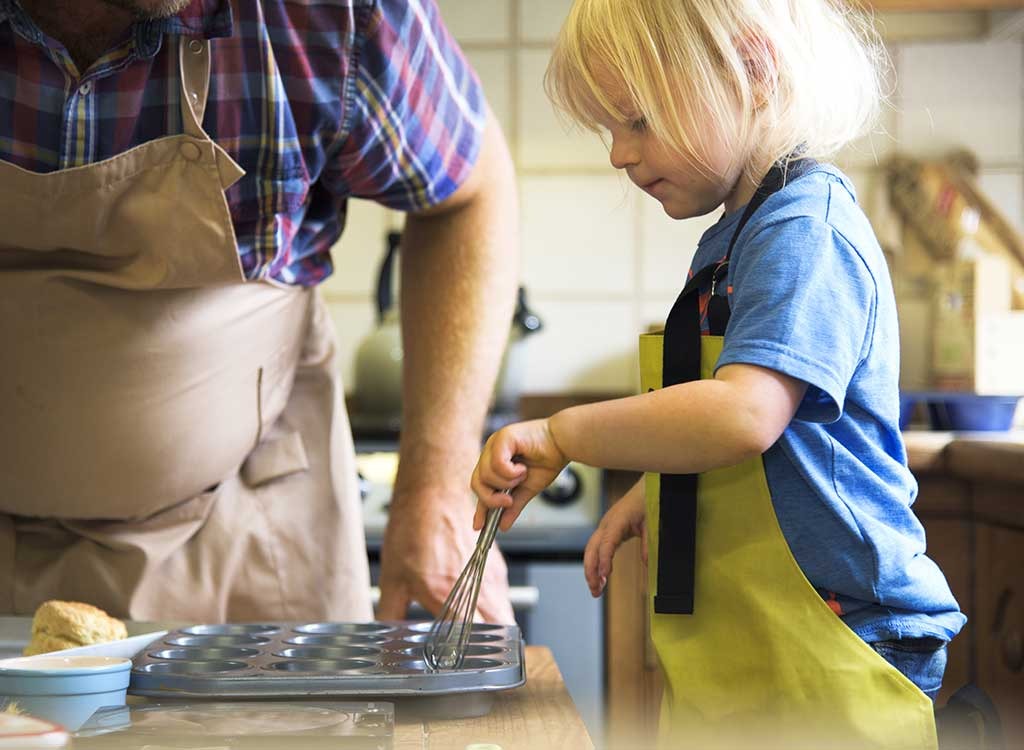
They say that practice makes perfect, and that's certainly true when it comes to cooking. Cooking meals at home on a regular basis will help you refine your skills. What starts as a lackluster meal can become your menu's piece de resistance over time. In the immortal words of Julia Child, "The measure of achievement is not winning awards. It's doing something that you appreciate, something you believe is worthwhile. I think of my strawberry soufflé. I did that at least 28 times before I finally conquered it."
Start With Some Standard Recipes
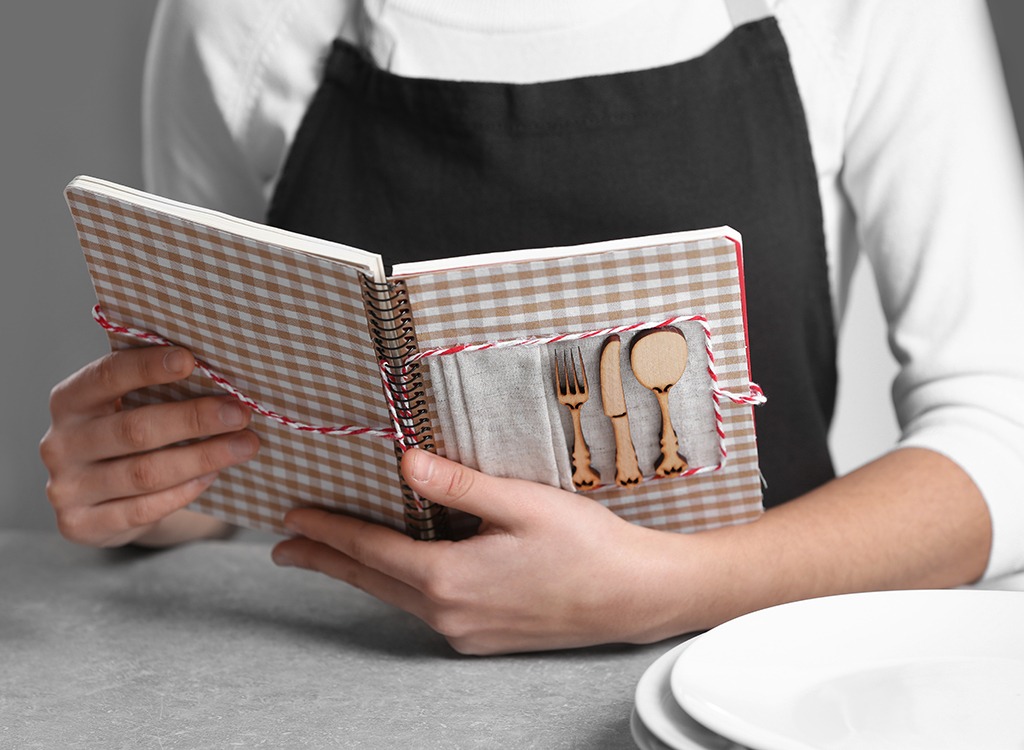
Don't try to hone your craft with a recipe you'll never eat again. Learning and practicing the basics, like roasting a chicken, sautéing vegetables, and creating a sauce from scratch, will help you build a solid foundation. When you're first starting out, make sure that you're following recipes to a T—you have to know the rules to break them, after all.
Prep First
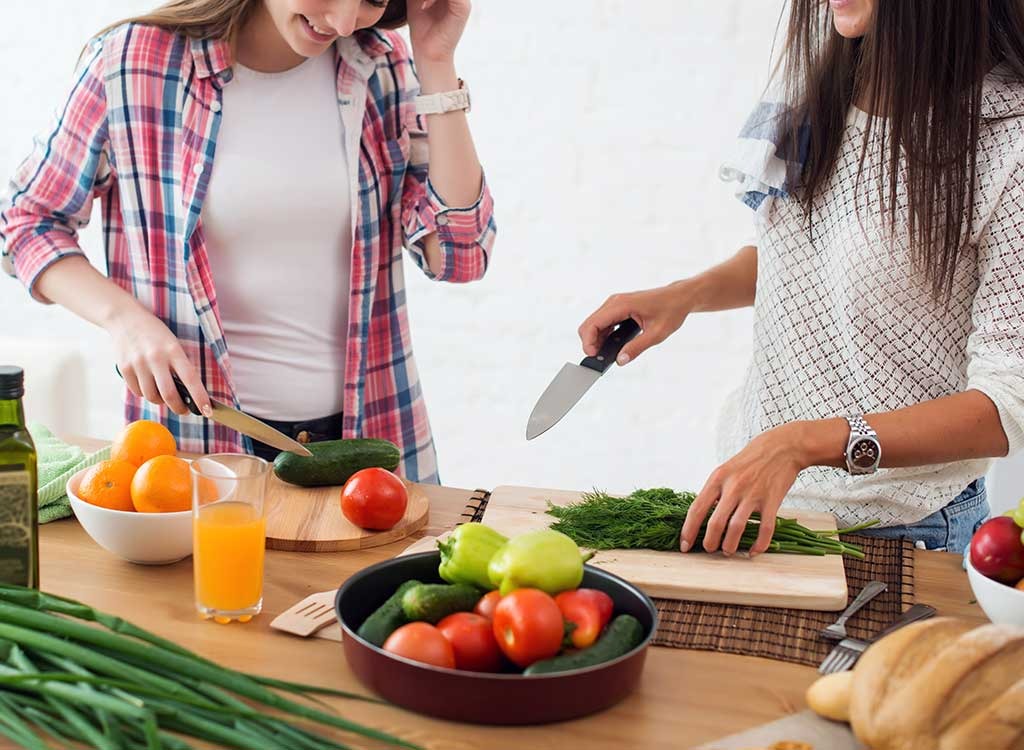
Before you turn on the oven or don that apron, make sure that all of your ingredients are prepped. This step, often referred to as "mise en place," or "to put in place," will make it easy to prepare a perfect meal. If you've ever watched a cooking show, you'll notice that pro chefs already have their ingredients measured out and in front of them for this reason—they know that running to the fridge for butter or raiding the cabinet for a specific spice can waste valuable time, putting you at risk of overcooking your food in the process.
Learn to Balance Flavors
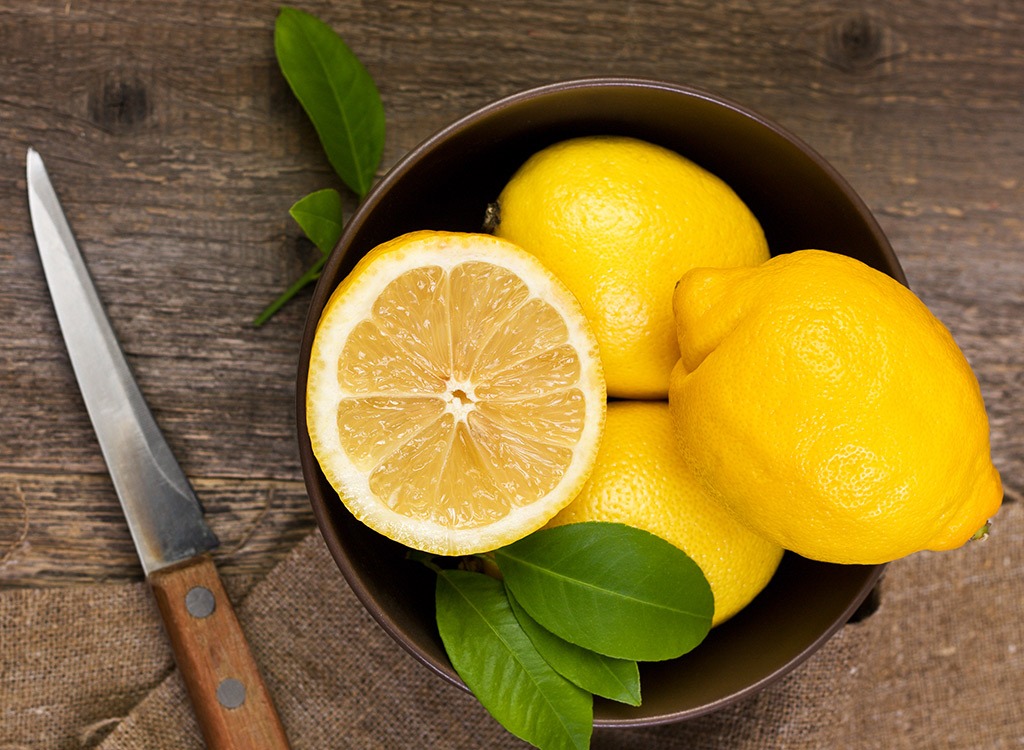
If you've ever found yourself frustrated by a dish that's too sweet or too salty, but don't know how to fix it, learning to balance flavors can be your ace in the hole. Balancing a dish means knowing what tastes to boost when your recipe is being overwhelmed by a single flavor. If this concept seems overly complicated, Cook Smarts' Flavor Star can help you figure out how to get started.
Keep Staples Handy
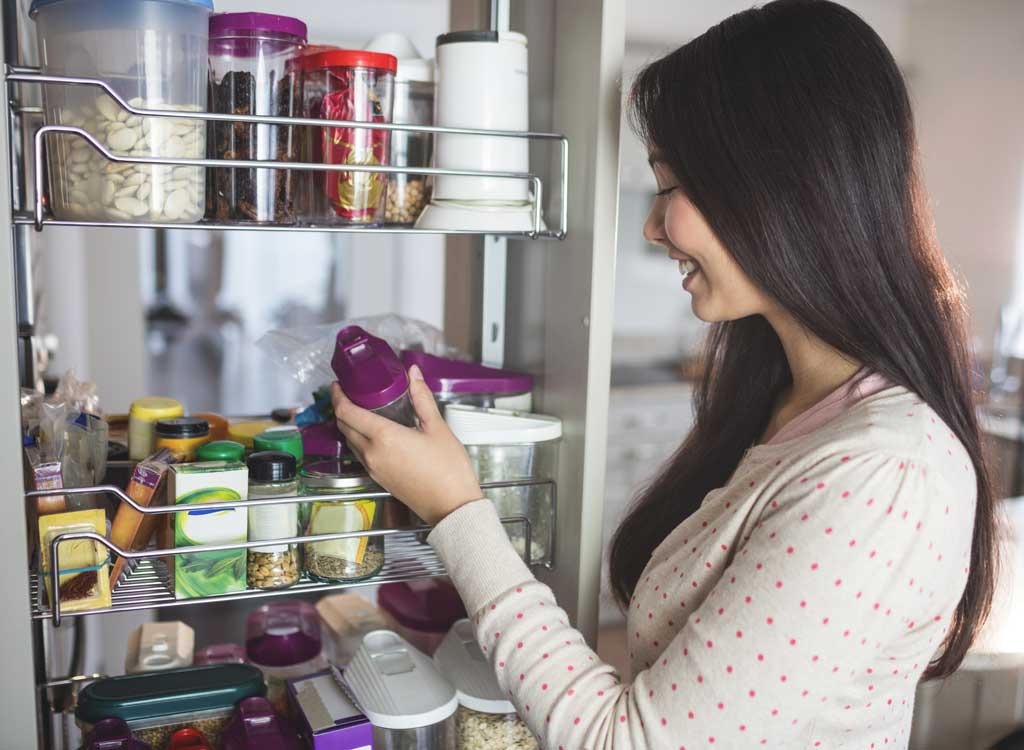
It's hard to improve your cooking skills without the right ingredients on hand. Making sure your fridge and cabinets are stocked with a variety of fresh or frozen fruits and vegetables, eggs, your preferred milk and flour options, and olive oil will allow you to whip up a wealth of dishes without having to run to the store, allowing you more time to practice and perfect your recipes.
Master Some Marinades
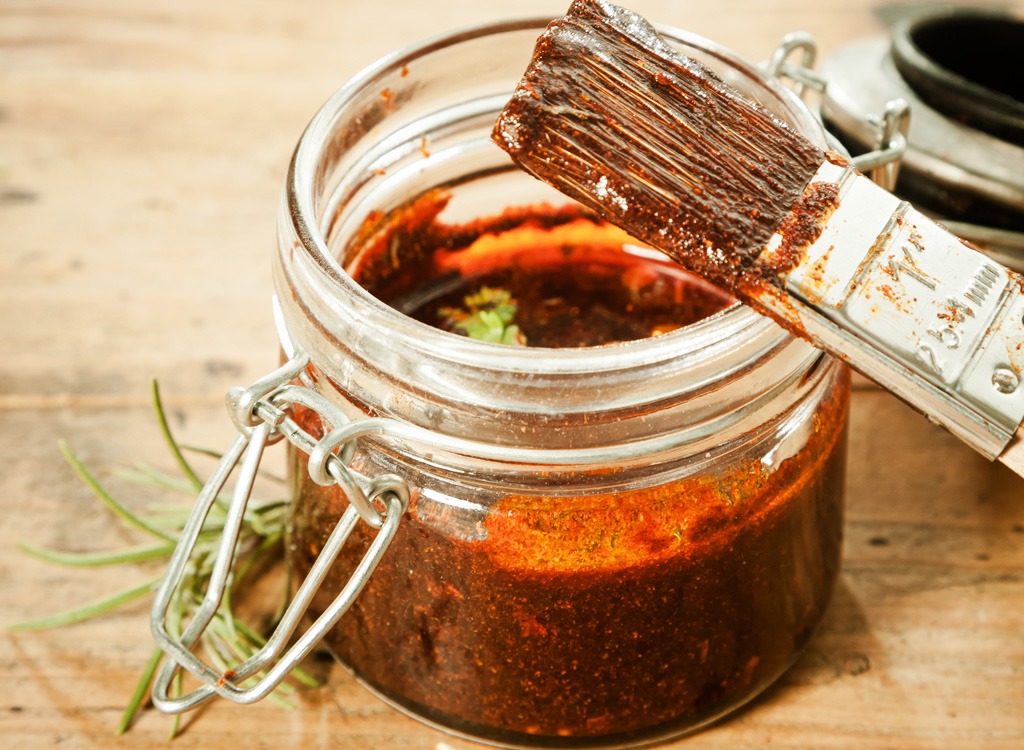
Why does steak cooked at your favorite restaurant taste so much better than the stuff you make at home? The answer lies in the marinade. Creating a flavorful marinade for your protein or vegetables and knowing what they do to the texture of your food—highly acidic marinades tend to toughen proteins, for example—can help you enhance your dishes and become a master of meal creation.
Grate Your Own Cheese
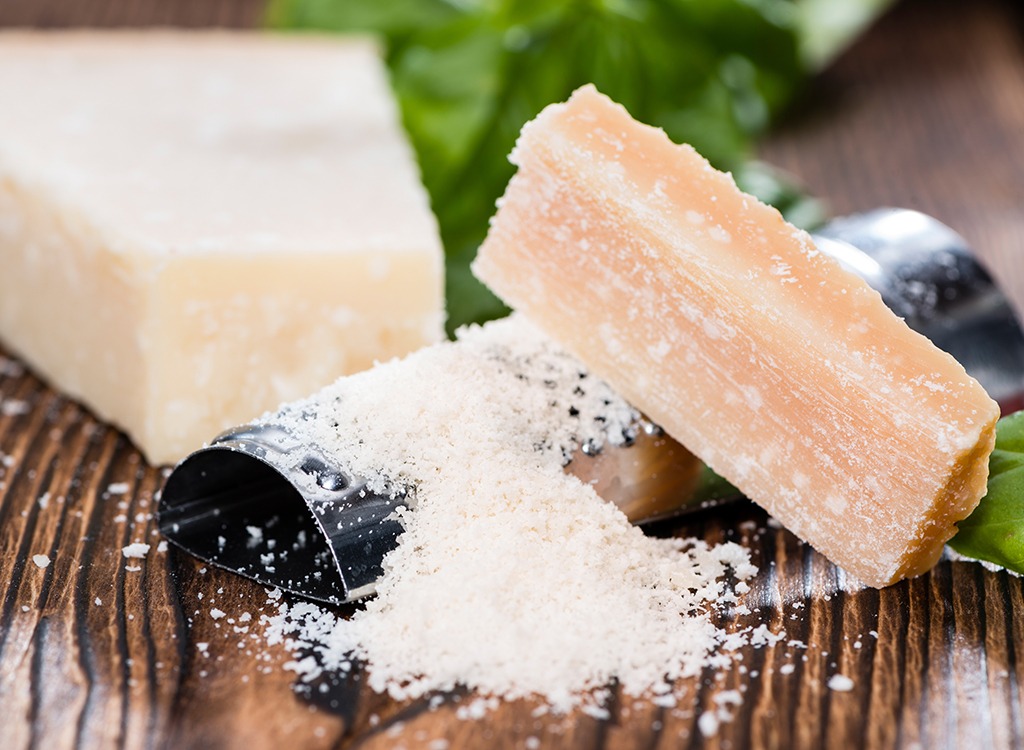
Sure, grated cheese from your local supermarket works in a pinch, but grating your own will make every recipe better. Bagged cheese is often coated with ingredients that keep it from clumping. Unfortunately, this can also mean it doesn't properly incorporate into dishes when heated. For the best bet, grate your own cheese from a block when you need it using a well-cleaned grater that's been prepped with a little cooking spray.
Buy Yourself the Right Tools
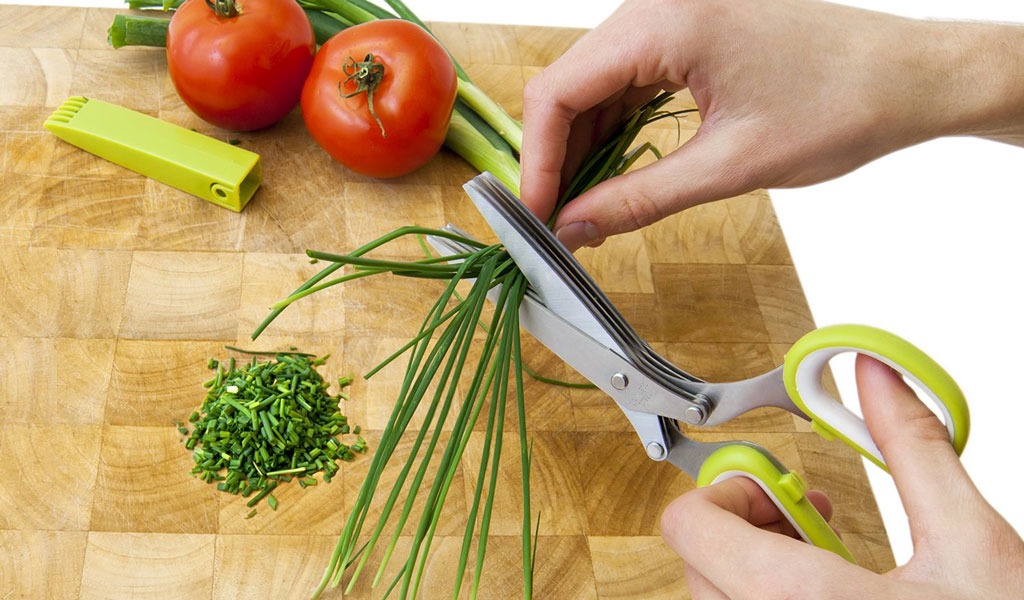
Cooking without the right kitchen tools handy is like trying to hammer a nail with a hat: it just won't work. While there are some work-arounds that you can use in a pinch, having dedicated tools for what you're trying to achieve, like a mandoline for creating thinly-sliced veggies, or a dedicated spice grinder, makes it much easier to make a perfect dish every time.
Add Some Heat
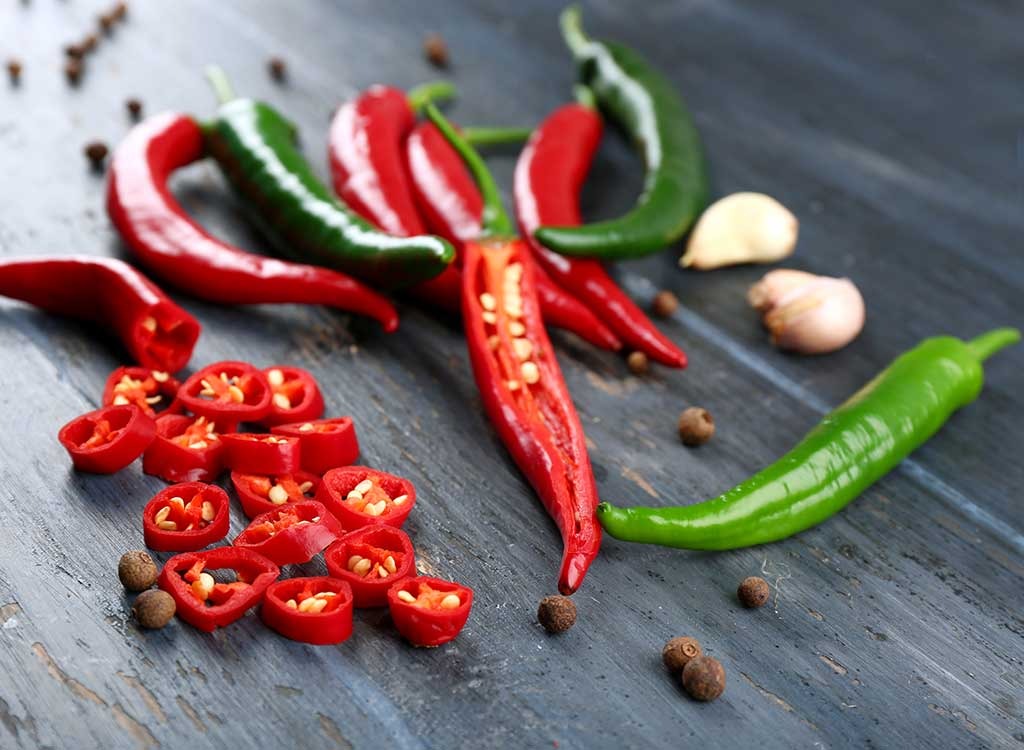
Just because you don't love tongue-scorching food doesn't mean you should steer clear of hot peppers entirely. When used in the right proportion, a little spice can add some serious complexity to an otherwise meh recipe. Just make sure you're balancing that flavor with something richer and less acidic to keep from overloading your taste buds. Hot peppers aren't the only way to spice up your fat-burning power, however; discover the 55 Best-Ever Ways to Boost Your Metabolism and watch the pounds melt right off.
Know Your Smoke Temps
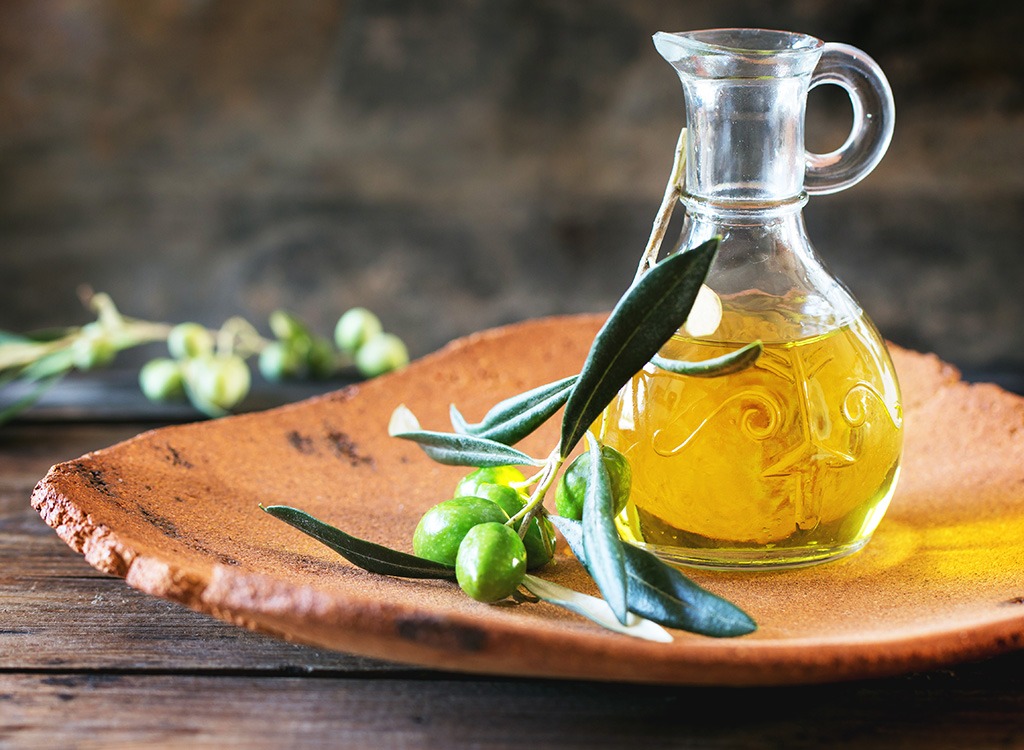
One of the most disheartening kitchen catastrophes is grabbing an ingredient, only to discover your dish smoking on the stove when you turn back. Fortunately, knowing the smoke points of the oil you're cooking with can help. While butter smokes around 250 degrees Fahrenheit, and olive oil can only hold stead to about 375, and avocado oil, ghee, and peanut oil can all be heated to over 400 degrees before they start to smoke. Keeping this info handy can help you choose the right cooking oil and will buy you more time on the stove.
Take it Slow

Patience is a virtue, especially when it comes to cooking. Taking your time to do things right, whether that means slowly adding ingredients to a recipe instead of dumping them all in at once or waiting patiently for dough to rise, will make all the difference in how your food turns out. This means taking time to prep, too: allowing for meat to reach room temperature before it hits the pan can help its proteins soften slightly, making it more tender when it's done cooking. Fortunately, once you have ample practice, timing your dishes so that they're ready all at once will be a breeze, too.
Sharpen Your Knives Regularly
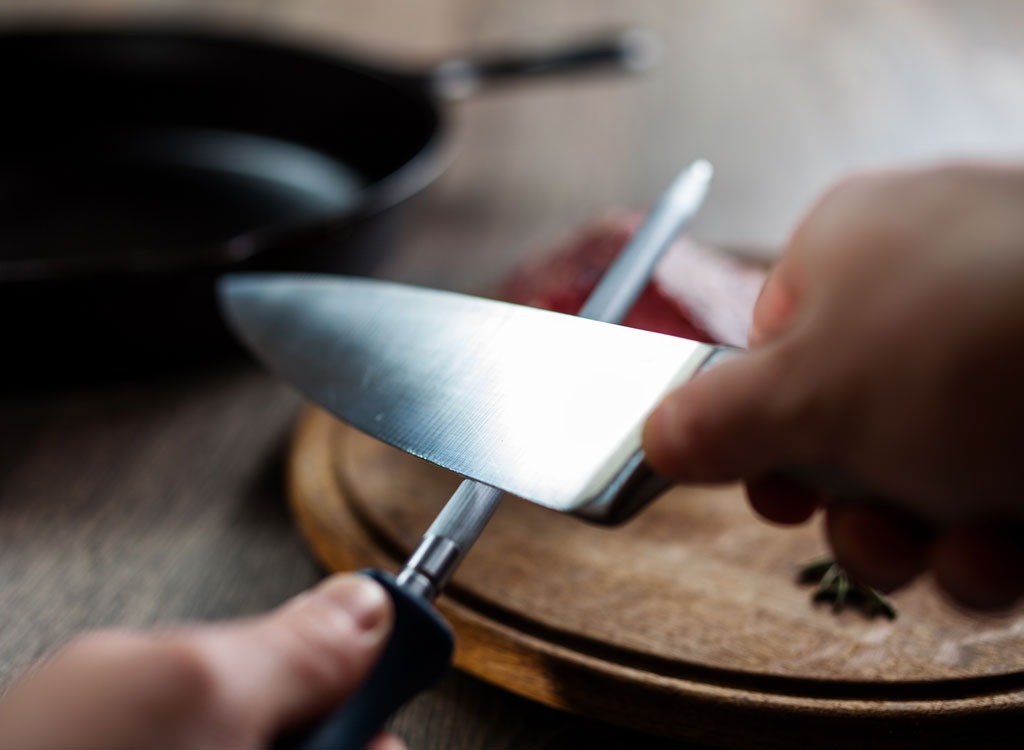
While it may seem counterintuitive, a sharp knife is the safest bet in the kitchen. However, keeping your knives properly-sharpened does more than just spare your fingers. Using sharp knives makes it easier to get precise cuts, as well, meaning more tender meat, thinner, more evenly-cooked vegetables in your stir-fry, and more precisely-sliced pie.
Dry Your Meat
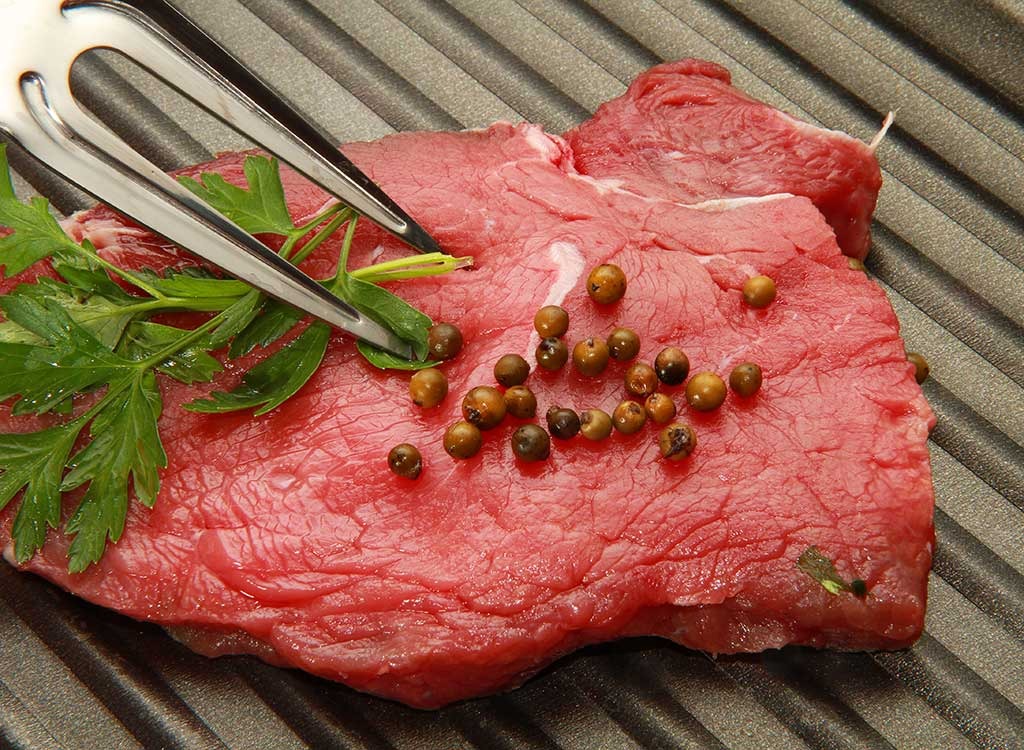
Before you slap a steak on the grill, make sure you've dried it off first. The moisture on the exterior of meat will create steam, making it harder to achieve the nicely-seared surface you want.
Don't Overwork Your Food
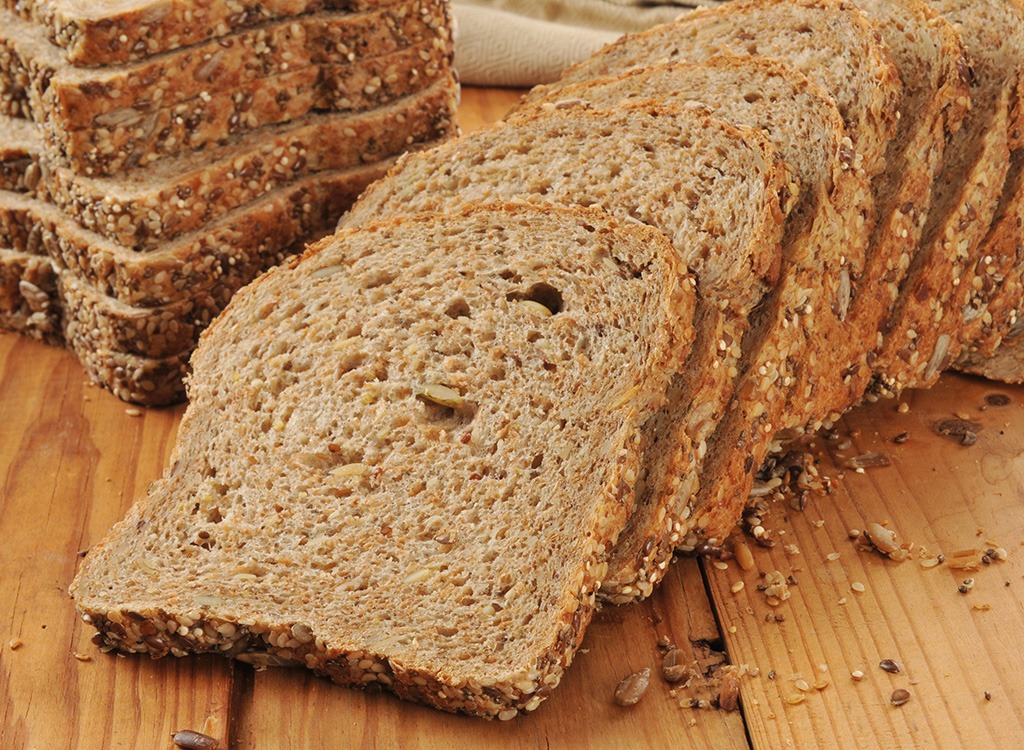
Cooking is an art, but baking is a science, which is why it's so important that you don't overwork your dough. Overworking your dough when baking means that you're squeezing out the pockets of air that make foods light and fluffy. Instead, combine ingredients until adequately mixed, and then allow your dough to come to room temperature before putting it in the oven.
Know When to Salt
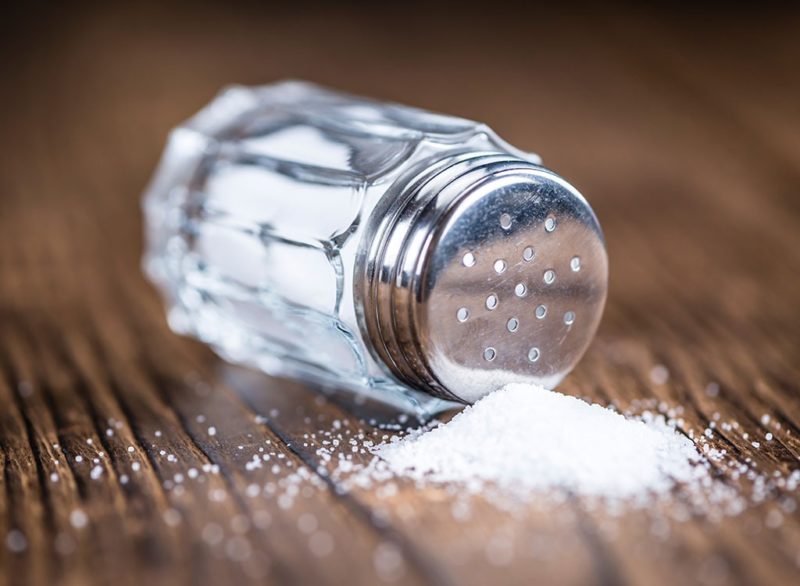
Salt isn't an ingredient that can be added to recipes willy-nilly. Salting food before you cook it will allow it to properly absorb the sodium. When you salt at the end of cooking, you're basically giving your recipe a sodium crust, making it taste much saltier, even if you're not actually using more than the recommended amount.
Take Your Food's Temperature
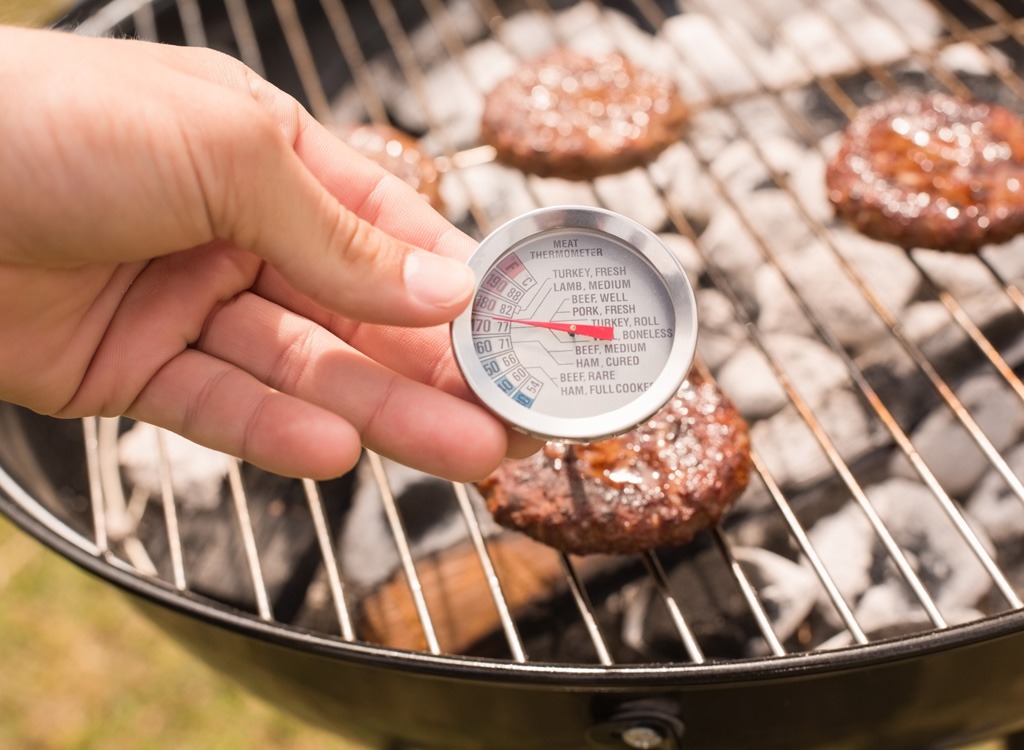
Eyeballing your food just won't cut it if you're trying to make sure your recipes are properly cooked. To steer clear of food poisoning or steaks with a leather-like consistency, invest in a good meat thermometer and take the temperature of your food during the cooking process. The myofibrillar proteins in different cuts of meat break down at different temperatures, making them either tender or tough, so knowing how hot you want that steak or chicken breast to get is essential for keeping your food edible. Luckily, even if you don't have a ton of time to cook, these 35 Healthy Slow Cooker Recipes will make it easy to make a home-run meal.
Start With a Hot Pan
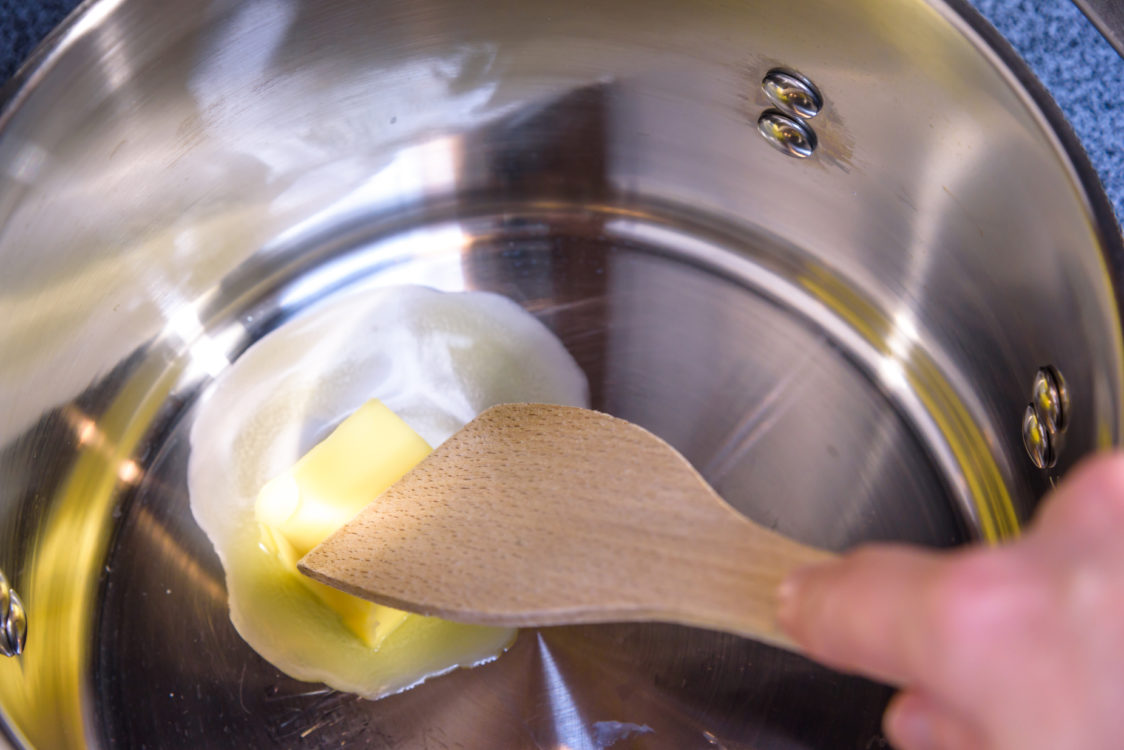
If there's one thing good chefs never do, it's cook with a cold pan. Heating your pan before you add any ingredients will cut down on cooking time, will cook your ingredients more evenly, and can even reduce your risk of burning your food.
Tenderize Your Meat
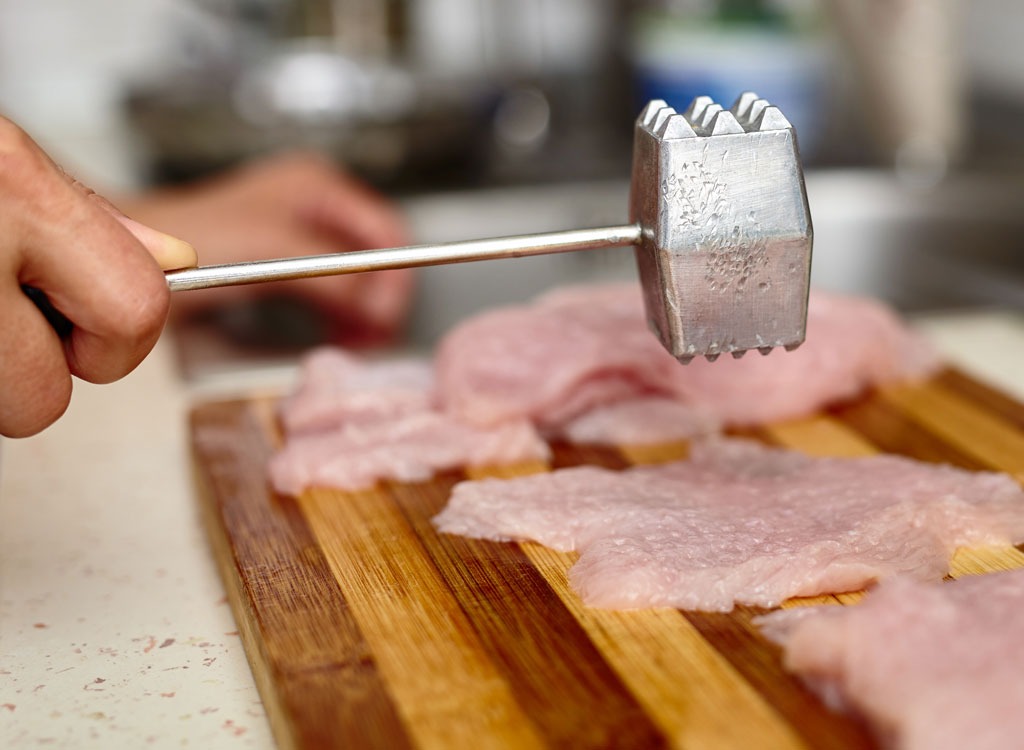
Try a little tenderness—when it comes to your meat, that is. Pounding your meat with a tenderizer can help break up the fibers that toughen during the cooking process, while enzymatic marinades can help make your food more tender before it ever touches a flame.
Practice Plating
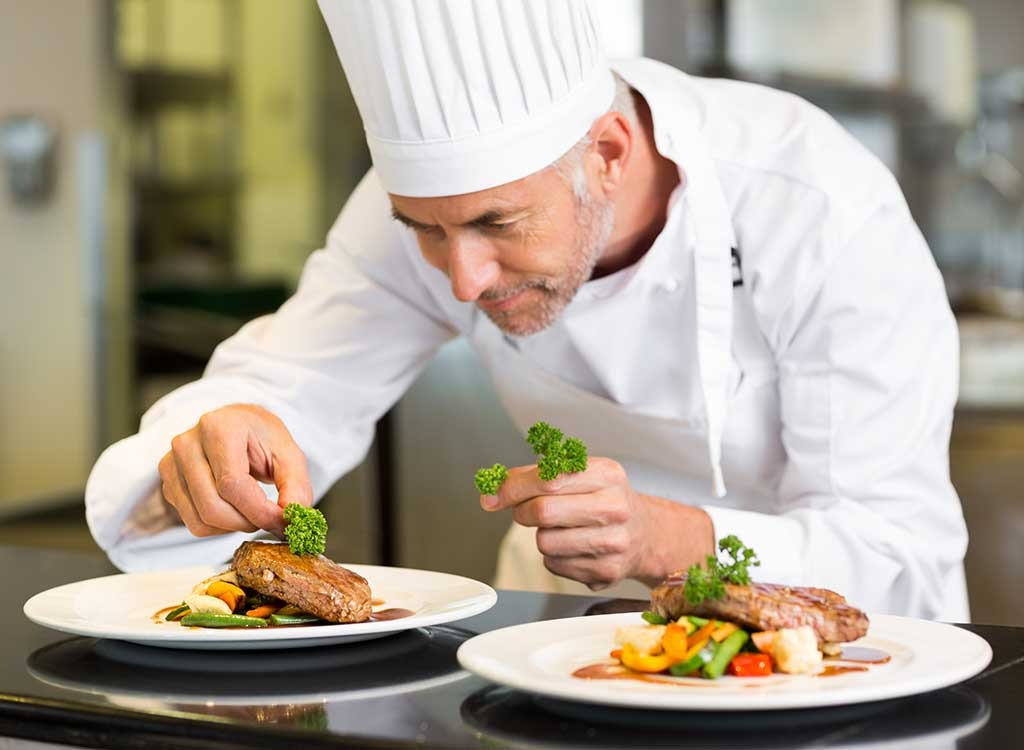
Looks aren't everything, but they do count for something in the kitchen. Learning to properly plate your recipes allows your culinary creations to shine and gives you a fun trick with which to wow your guests at your next dinner party.
Properly Clean Your Pans
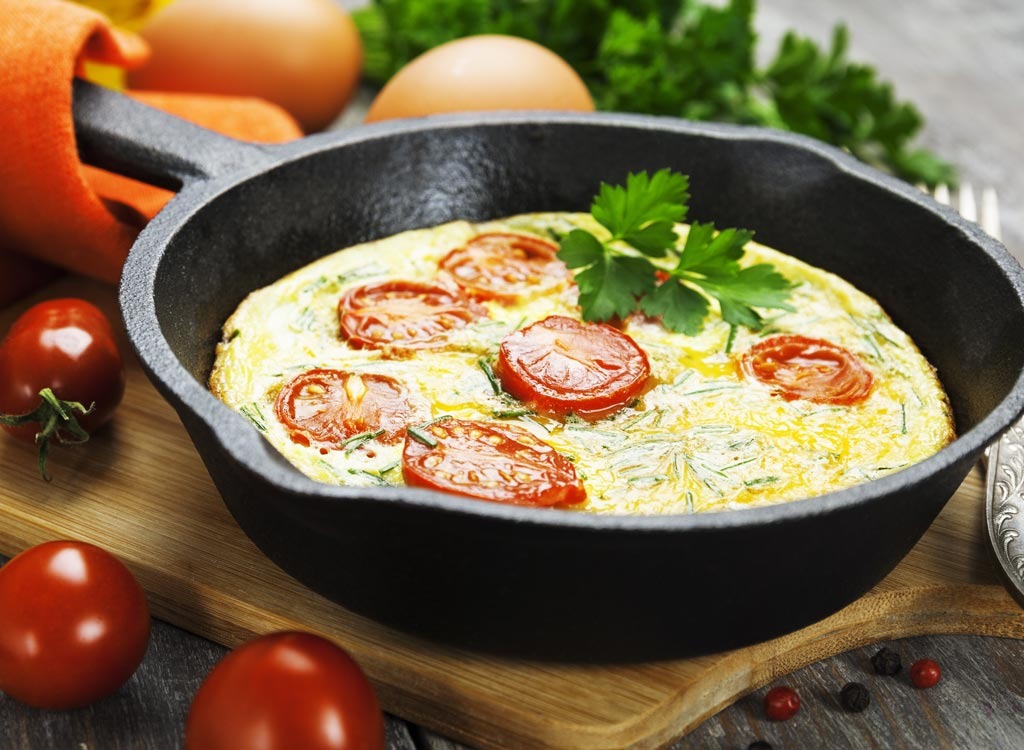
If you want to be a whiz in the kitchen, learn how to properly clean your pots and pans. Using overly-stripping soaps can de-season a cast iron pan, while using steel wool on a non-stick pan can cause the coating to flake off. Learning the proper steps for maintaining your cookware today will mean you can still use those tools for years to come, getting more accomplished with every meal. If you don't have time to wash a sink full of dishes every morning, start your day with one of these easy-to-prepare weight loss smoothies instead.
